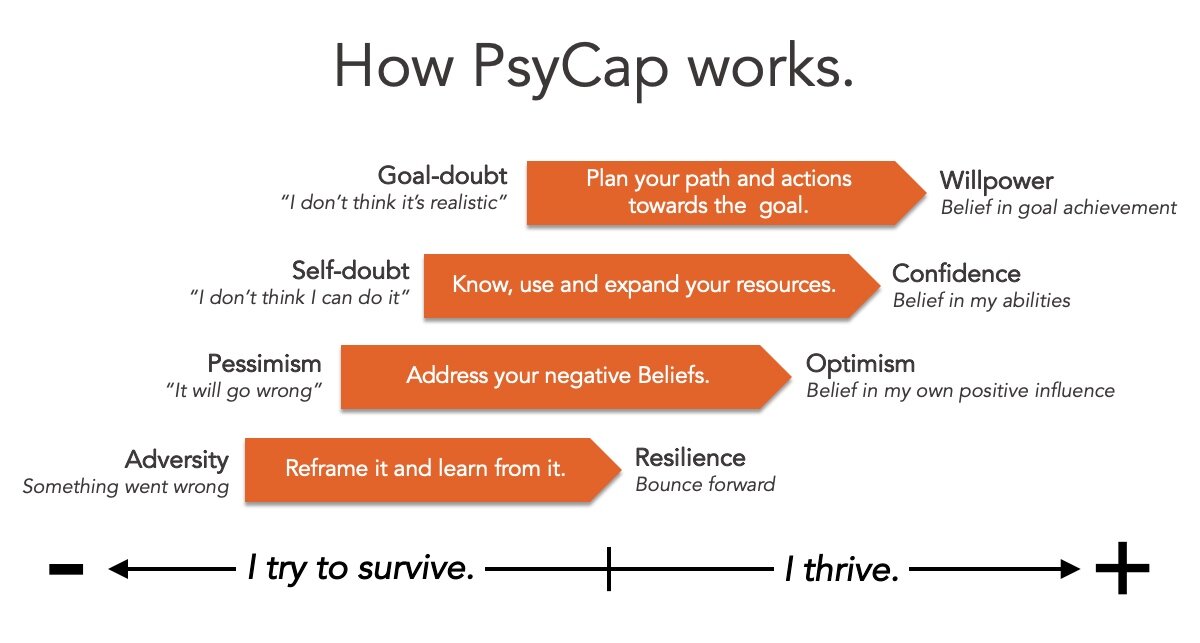Understanding The Value Of Middle Managers In Today's Workplace

Table of Contents
Middle Managers as Bridges Between Leadership and Employees
Middle managers serve as a vital bridge, connecting senior leadership with frontline employees. This crucial role ensures effective communication and collaboration throughout the organization.
Improved Communication and Information Flow
Middle managers act as translators, converting high-level strategic directives from leadership into actionable tasks for their teams. Simultaneously, they relay valuable bottom-up feedback from employees to senior management, ensuring that concerns are heard and addressed.
- Effective communication strategies: Middle managers utilize various communication methods, including regular team meetings, one-on-one check-ins, and written updates, to ensure clear and consistent messaging.
- Handling employee concerns: They act as a buffer, addressing employee concerns and resolving conflicts before they escalate, preventing potential disruptions to productivity and morale.
- Reporting progress: They provide regular updates to senior management on team performance, project progress, and potential roadblocks, enabling proactive intervention and course correction.
- Facilitating feedback mechanisms: Middle managers actively solicit and incorporate feedback from their teams, fostering a culture of open communication and continuous improvement.
Enhanced Collaboration and Teamwork
Beyond communication, middle managers are instrumental in fostering collaboration and teamwork. They cultivate a positive work environment where team members work together effectively to achieve common goals.
- Conflict resolution techniques: They possess the skills to mediate disagreements, find common ground, and facilitate constructive dialogue among team members.
- Team building activities: They organize and participate in team-building activities to improve relationships, communication, and trust among team members.
- Fostering open communication channels: They encourage open communication and information sharing among team members, promoting a collaborative work environment.
- Promoting cross-functional collaboration: They facilitate collaboration between different teams and departments, breaking down silos and improving overall organizational efficiency.
Middle Managers as Strategic Executors and Problem Solvers
Middle managers are not merely messengers; they are active participants in strategic execution and problem-solving. They translate organizational strategy into tangible results and proactively address challenges.
Driving Operational Efficiency
Middle managers oversee daily operations, ensuring smooth workflows and maximizing productivity. They are responsible for implementing strategies, optimizing processes, and allocating resources effectively.
- Process improvement techniques: They identify areas for improvement, streamline workflows, and implement process optimization techniques to enhance efficiency.
- Resource allocation: They allocate resources effectively, ensuring that teams have the necessary tools and support to achieve their objectives.
- Performance monitoring: They closely monitor team performance, identify potential issues, and take corrective actions to ensure targets are met.
- Identifying operational bottlenecks: They identify and address bottlenecks, streamlining processes to improve overall operational efficiency and productivity.
Proactive Problem Solving and Risk Mitigation
Middle managers play a crucial role in anticipating and addressing potential problems. They proactively identify risks, develop solutions, and mitigate potential disruptions.
- Risk assessment: They conduct regular risk assessments, identifying potential challenges and developing mitigation strategies.
- Problem-solving methodologies: They employ various problem-solving methodologies to analyze issues, identify root causes, and develop effective solutions.
- Contingency planning: They develop contingency plans to address unexpected events and ensure business continuity.
- Proactive decision-making: They make timely and informed decisions to address challenges and keep projects on track.
Middle Managers as Mentors and Employee Developers
Beyond operational tasks, middle managers play a vital role in employee development and morale. They invest in their team members' growth and create a positive and supportive work environment.
Investing in Employee Growth and Development
Middle managers act as mentors and coaches, guiding and supporting their team members' career progression. They provide opportunities for skill development and advancement.
- Mentorship programs: They participate in or establish mentorship programs to provide guidance and support to their team members.
- Performance reviews: They conduct regular performance reviews, providing constructive feedback and identifying areas for improvement.
- Talent identification: They identify high-potential employees and provide them with opportunities for growth and development.
- Training and development initiatives: They identify training needs and facilitate access to development programs to enhance employee skills.
Boosting Employee Morale and Engagement
Middle managers significantly influence employee morale and engagement. They cultivate a positive work environment where employees feel valued, respected, and motivated.
- Recognition programs: They implement recognition programs to acknowledge and appreciate employee contributions.
- Open-door policies: They maintain an open-door policy, encouraging employees to share their concerns and suggestions.
- Promoting work-life balance: They promote a healthy work-life balance, encouraging employees to prioritize their well-being.
- Fostering a culture of appreciation: They create a culture of appreciation and respect, where employees feel valued and supported.
The Evolving Role of Middle Managers in a Changing Workplace
The role of middle management is constantly evolving, requiring adaptation to new technologies and work models.
Adapting to Technological Advancements
Middle managers must embrace new technologies and tools to enhance efficiency and productivity. This requires continuous learning and a willingness to adapt.
- Embracing new technologies: They must stay current with the latest technologies and incorporate them into their workflows.
- Data analytics skills: They need to develop data analysis skills to track performance, identify trends, and make data-driven decisions.
- Digital literacy: They require strong digital literacy skills to effectively utilize various software and communication tools.
- Automation and process improvement: They need to leverage automation and process improvement tools to enhance efficiency and reduce manual tasks.
Navigating Remote and Hybrid Work Models
The rise of remote and hybrid work models presents both challenges and opportunities for middle managers. They must adapt their leadership styles and communication strategies to effectively manage distributed teams.
- Effective virtual communication: They need to master effective virtual communication techniques to maintain clear and consistent communication with remote team members.
- Maintaining team cohesion: They must find ways to maintain team cohesion and build relationships in a virtual environment.
- Fostering trust and collaboration remotely: They need to cultivate trust and collaboration among remote team members, fostering a sense of community.
- Using project management tools: They should utilize project management tools to effectively track progress, assign tasks, and manage workflows in a remote or hybrid setting.
Conclusion
Middle managers are far from redundant; they are essential components of a successful organization. Their contributions – improved communication, strategic execution, employee development, and adaptability – are critical to achieving organizational goals. They bridge the gap between leadership and employees, fostering collaboration and driving operational efficiency. Invest in your middle management; recognize the invaluable contributions of your middle managers; unlock the full potential of your middle management team. Effective middle management is vital for navigating the complexities of today's dynamic business landscape and achieving sustainable success.

Featured Posts
-
 Discover The Countrys Top New Business Locations
Apr 22, 2025
Discover The Countrys Top New Business Locations
Apr 22, 2025 -
 Wall Streets Flight To Safety Why Netflix Thrives In The Big Tech Downturn
Apr 22, 2025
Wall Streets Flight To Safety Why Netflix Thrives In The Big Tech Downturn
Apr 22, 2025 -
 Is Netflix The New Tariff Haven Analyzing Its Success Against Big Tech Trends
Apr 22, 2025
Is Netflix The New Tariff Haven Analyzing Its Success Against Big Tech Trends
Apr 22, 2025 -
 V Mware Costs To Skyrocket At And T Details A 1 050 Price Increase From Broadcom
Apr 22, 2025
V Mware Costs To Skyrocket At And T Details A 1 050 Price Increase From Broadcom
Apr 22, 2025 -
 China And Indonesia Deepen Security Cooperation
Apr 22, 2025
China And Indonesia Deepen Security Cooperation
Apr 22, 2025
